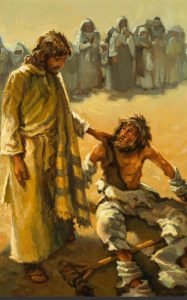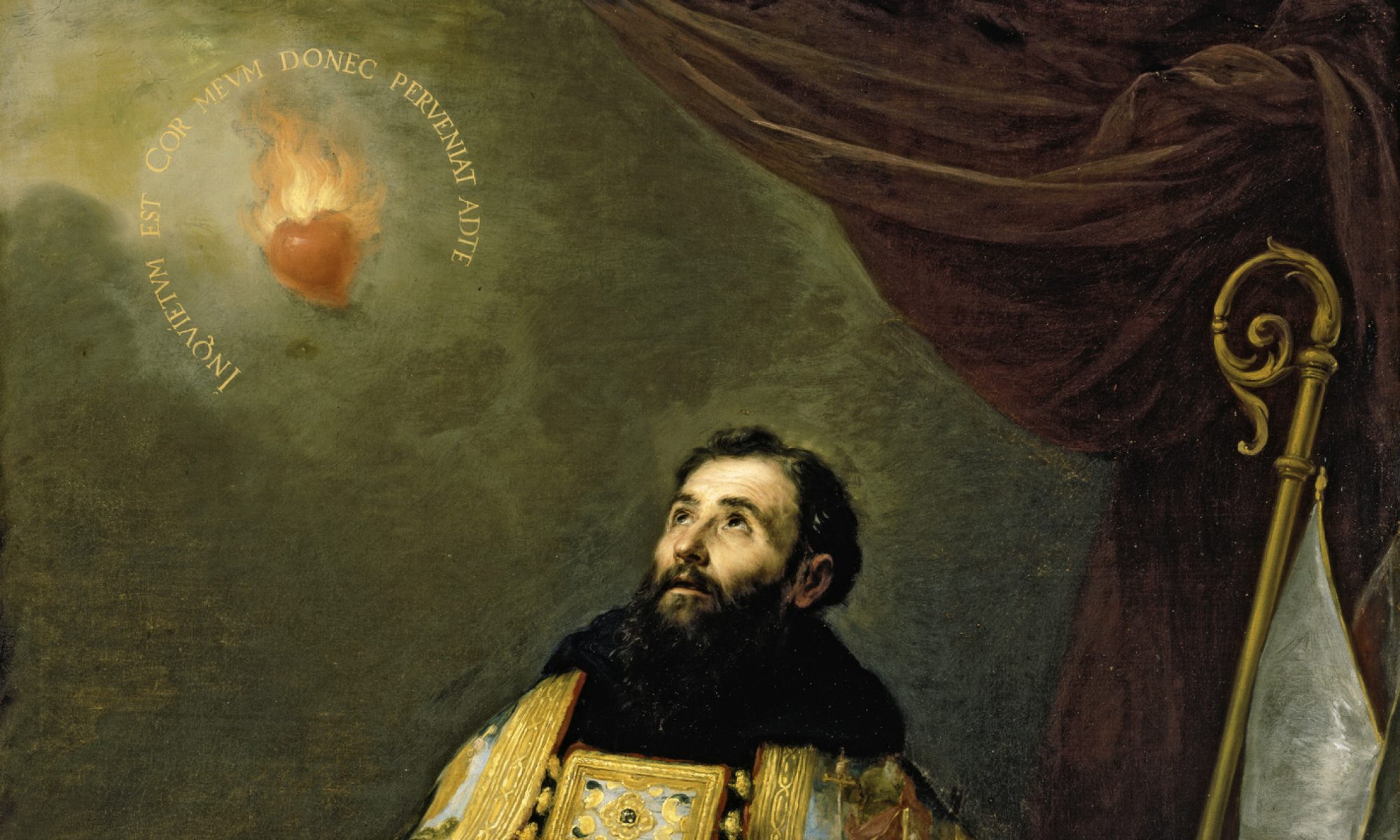On January 31, 2024, I was invited by one of my parishioners to go skiing with him at Mt. Rose Ski Resort. I was challenged to try that sport on a windy and freezing day, overcoming all sorts of fears as a neophyte. The following day I could hardly walk because of sore leg muscles. However, my consolation that moment was to admire the beauty of the mountain where I struggled to manage being humble following my instructor’s advice and lessons for the skills to learn faster and for me to easily navigate alone skiing with much enjoyment. I remember the words of St. Paul today, “whatever you do, do everything for the glory of God.” I am grateful to God that I was not hurt despite the experience of falling several times, and I said to myself, “I have achieved a new height of success at my age.” Thus, we are called to overcome fears in life and all sorts of sickness, only to seek the Lord, and glorify Him.
Today is the 6th Sunday in Ordinary Time, Year B. In life we learn many things that give us consolation for the things we do. We have beautiful readings today that would inspire and guide us. The responsorial psalm today affirms that we must “turn to the Lord in times of trouble and to fill us with the joy of salvation.” (Ps. 32).
The first reading today, taken from the book of Leviticus, cites to us that leprosy is a dreadful disease. The people with leprosy are treated by segregation and are faced with shame even up to this day in time. Moses dealt with a response to the people, that anyone who has skin scabs, which appear to be the sore of leprosy, “he shall be brought to Aaron, the priest or to one of the priests among his descendants.” It was the priest who determined whether a person had the disease. Just imagine, a man with the disease would be ostracized and it was announced to all that he is unclean.
This book of Leviticus deals mostly with laws contributing to proper order in the life of the Hebrew people resulting from God’s direct word through Moses and or Aaron.
The second reading from the letter of St. Paul to the Corinthians reminds us that we must follow Paul to imitate Christ. We need to avoid offending people, acting not for self but for others, and doing everything for the glory of God. Our concern for the marginalized of our society and the church is to act on their behalf, not to assert our rights, but to be true to the name we are called, Christians!
The gospel today narrates to us about Jesus, the healer. The leper came to Jesus with his profound act of faith, saying, “If you wish you can make me clean.” Jesus touched the leper, considered to be “unclean,” saying, “I will do it. Be made clean.” The leprosy left him immediately. According to the law, Jesus told the man to go and show himself to the priest who would declare him clean. He also told him to keep the healing a secret. Jesus wasn’t ready for people to get king or Messiah ideas about him. Sadly, the man didn’t listen to Jesus and spread, not the disease of leprosy, but the good news, which is the story about Jesus’ works of healing which he had received.
Who would dare to touch a leper? Only Jesus. Jesus doesn’t follow the norm of avoiding a leper, and instead He shares His righteousness and holiness which made the leper be restored to his well-being. Jesus took the man’s suffering, pain, and shame into His own merciful heart.
It is an inspiring story to know that no matter how dark our life is, we trust Jesus to remove those spots of darkness and sins as He did top the man with leprosy. We just approach Jesus with our simple hope and faith. Literally, Jesus has the power to cleanse us from physical and spiritual illness, but more importantly He brings us back into a relationship. We must surrender and allow ourselves to be touched by His tenderness and His love to make us whole and holy.
If we cannot simply approach Jesus, our leprosy might be our pride and arrogance. Therefore, we would be missing that opportunity to be healed. Today, during this celebration of the eucharist, let us encounter Jesus, then come to Him, kneel down and after admitting the truth about ourselves, Jesus constantly expressing His desire to cleanse us. “I do will it,” is His way to embrace us for our integral healing. We pray with honesty for the grace to be reached out by Jesus so that we won’t be alienated again.
God bless you.
Fr. Arlon, osa
—————————-
El dictado del corazón
Sexto Domingo del Tiempo Ordinario, Año B
- Levítico 13:1-2, 44-46
- Salmo 32:1-2, 5, 11
- 1 Corintios 10:31-11:1
Marcos 1:40-45
El 31 de enero de 2024, uno de mis feligreses me invitó a ir a esquiar con él en Mt. Rose. Me desafiaron a probar un nuevo deporte en un día ventoso y helado, superando todo tipo de miedos como principiante. Sin embargo, mi consuelo cuando estaba en la cima de la montaña fue admirar la belleza de la naturaleza, donde me esforcé por ser humilde y tratar de seguir los consejos de mi instructor, quien me enseñaba habilidades para aprender más rápido y poder navegar solo, esquiando con facilidad. Al día siguiente apenas podía caminar, me dolían los músculos de las piernas. Lo disfrute Mucho. Recordé las palabras de San Pablo hoy: “Hagas lo que hagas, hazlo todo para la gloria de Dios”. Agradezco a Dios que no me allá lastimado a pesar de la experiencia de caerme varias veces, luego me dije: “He alcanzado una nueva altura de éxito a mi edad”. Por lo tanto, estamos llamados a superar los temores en la vida y todo tipo de enfermedades, sólo para buscar al Señor y glorificarlo.
Hoy es el Sexto Domingo del Tiempo Ordinario, Año B. En la vida aprendemos muchas cosas que nos dan consuelo por las cosas que hacemos. Las lecturas de hoy son hermosas y deberían inspirarnos y guiarnos. El salmo responsorial de hoy afirma que debemos “A ti recurro, Señor, en el tiempo de angustia, y me llenas del gozo de la salvación.” (Sal. 32).
La primera lectura, tomada del libro de Levítico, nos cita que la lepra es una enfermedad terrible. Los enfermos de Lepra son tratados con desunión y avergonzados incluso hasta el día de hoy. Moisés dio una respuesta al pueblo, que cualquiera que tuviera una costra en la piel que pareciera ser una llaga de lepra, “será llevado al sacerdote Aarón, o a uno de los sacerdotes de su descendencia”. Era el sacerdote quien determinaba si una persona tenía la enfermedad. Imagínense, un hombre con una enfermedad sería condenado al destierro y se anunciaría a todos que era impuro. Este libro de Levíticos trata principalmente de leyes que contribuyen al orden apropiado en la vida del pueblo hebreo como resultado de la palabra directa de Dios a través de Moisés o Aarón.
La segunda lectura de la carta de San Pablo a los Corintios nos recuerda, que debemos seguir a Pablo para imitar a Cristo. Necesitamos evitar ofender a las personas, actuar no por nosotros mismos sino por los demás y hacer todo para la gloria de Dios. Nuestra preocupación por los marginados de nuestra sociedad y de la iglesia es actuar en su nombre, no para hacer valer nuestros derechos, sino para ser fieles al nombre que somos llamados, ¡cristianos!
El evangelio de hoy nos narra sobre Jesús, el sanador. El leproso se acercó a Jesús con su profundo acto de fe, diciéndole: “Si quieres, puedes limpiarme”. Jesús se compadeció de él, y extendiendo la mano, lo tocó y le dijo: “¡Sí quiero: ¡Sana!” La lepra lo abandonó inmediatamente. Según la ley, Jesús le dijo al hombre que fuera y se mostrara al sacerdote, quien lo declararía limpio. También le dijo que mantuviera la sanación en secreto. Jesús no estaba preparado para que la gente tuviera ideas de rey o de Mesías sobre él. Lamentablemente, el hombre no escuchó a Jesús, pero no difundió la enfermedad de la lepra sino la buena noticia, que es la historia de las obras de curación de Jesús que había recibido.
¿Quién se atrevería a tocar a un leproso? Sólo Jesús. Jesús no sigue la norma de evitar a un leproso, sino que comparte Su justicia y santidad que hicieron que el leproso recuperara su salud. Jesús tomó el sufrimiento, el dolor y la vergüenza del hombre en Su propio corazón misericordioso.
Es una historia que debe inspirarnos, saber que incluso cuán oscura es nuestra vida, confiamos en que Jesús eliminará esas manchas de oscuridad y de pecado, que le hizo al hombre con lepra. Simplemente nos acercamos a Jesús con nuestra sencilla esperanza y fe. Jesús tiene el poder de limpiarnos de enfermedades físicas y espirituales, pero lo más importante es que nos devuelve a una relación. Debemos rendirnos y dejarnos tocar por Su ternura de Su amor para hacernos íntegros y santos.
Si no podemos simplemente acercarnos a Jesús, nuestra lepra podría ser de orgullo y arrogancia. Por lo tanto, estaríamos perdiendo esa oportunidad de ser sanados. Hoy, durante esta celebración de la eucaristía, encontremos a Jesús, luego acerquémonos a Él, arrodillémonos y, después de admitir la verdad sobre nosotros mismos, Jesús expresa constantemente su deseo de limpiarnos. “Yo sí lo quiero”, la forma en que Jesús nos abraza para nuestra sanación total. Oramos con honestidad para que Jesús nos alcance la gracia para que no seamos impuros nuevamente.
Dios los bendiga.
P. Arlón, osa

